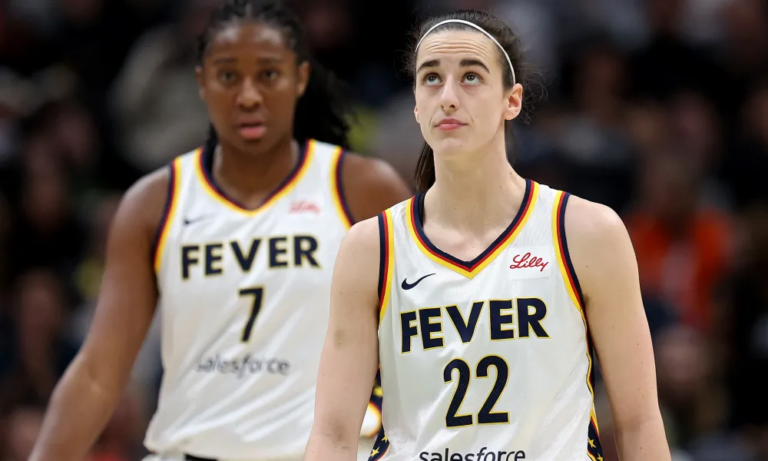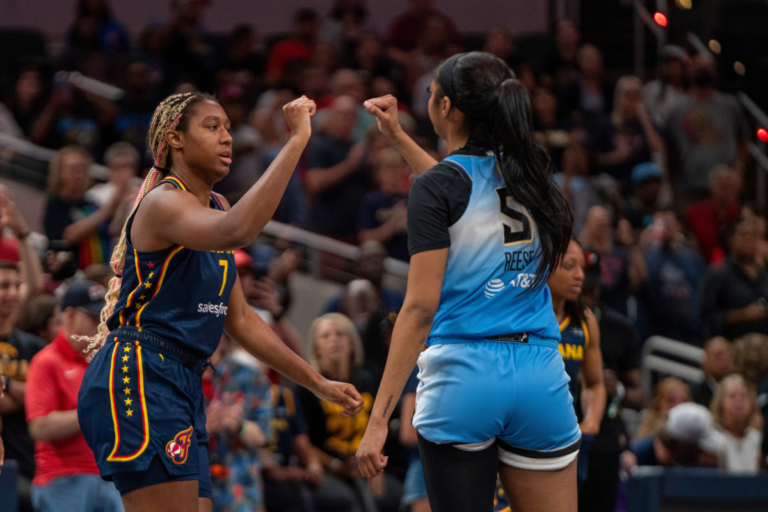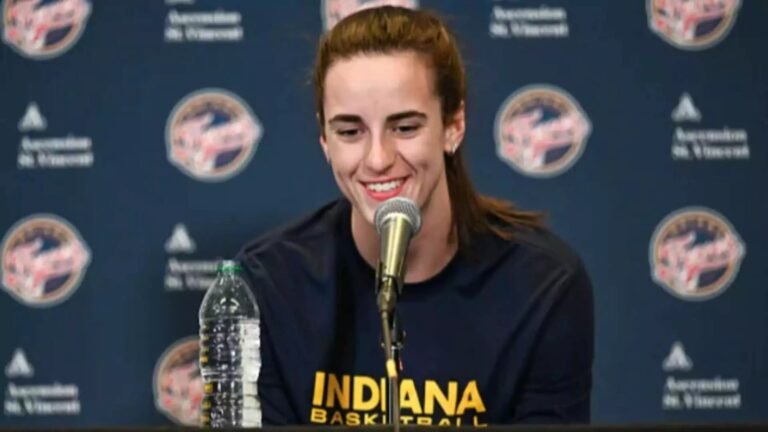
Indiana Fever guard Caitlin Clark (22) receives a delay of game warning during the second half of Game 2 of a first-round WNBA basketball playoff series agains the Connecticut Sun, Wednesday, Sept. 25, 2024, in Uncasville, Conn. (AP Photo/Jessica Hill)
As the Women’s National Basketball Association (WNBA) continues to rise in popularity both on TV and in arenas, the increase in visibility has not masked the racism directed at Black players, particularly from white fans.
Connecticut Sun forward Alyssa Thomas addressed this issue after her team’s playoff victory over the Indiana Fever, citing racist and threatening remarks made by Fever fans on social media. Thomas condemned the hateful comments, calling them “unacceptable” and expressing frustration over the degradation faced by her and her teammates, including DiJonai Carrington, who received a racial slur and threat of sexual assault from a fan.
Sun coach Stephanie White also spoke out, acknowledging the pervasiveness of racism, sexism, and other forms of discrimination in sports, while Caitlin Clark, the Fever’s white guard and WNBA Rookie of the Year, expressed dismay at the racist behavior, insisting that no player should endure such treatment.
The issue is compounded by the media’s overwhelming focus on white players like Clark, overshadowing the contributions of Black players. Las Vegas Aces star A’ja Wilson and Seattle Storm’s Nneka Ogwumike have both highlighted the lack of recognition given to Black athletes, despite the WNBA being predominantly composed of Black players, reflecting broader societal racism.






